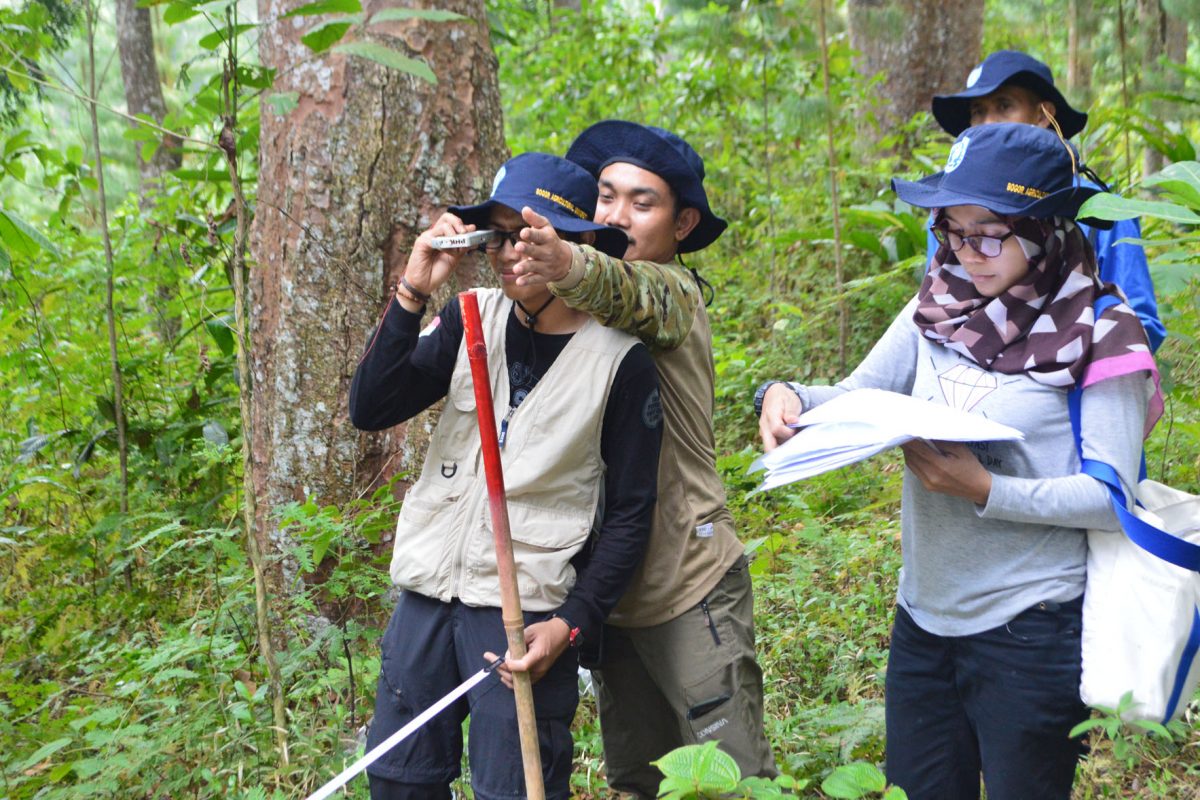
Gunung Walat, Sukabumi – Training on Terrestrial Carbon Accounting Certificate Program by CCROM-SEAP IPB had taken place on 5-8 September 2018 in Gunung Walat University Forest, Sukabumi.
The issue related to climate change that occurred in the world, especially in Indonesia, was our common homework to anticipate to make the impact not getting worse especially for future generations of our children and grandchildren. Therefore, the Center for Climate Risk and IPB Opportunity Management in Southeast Asia Pacific (CCROM – SEAP) collaborated with the US-based Green House Guest Management Institute, a department in China on gas emissions Greenhouse, and Carbon Institute to conduct training called Terrestrial Carbon Accounting (TCA) in Gunung Walat University Forest.
The training was attended by 30 participants from representatives of local governments, NGOs, and academics and research institutions, especially in the forestry sector.
“This activity is one of the special activities with the main objective to build the capacity of various parties including the local government, private, and non-private on how they are able to do calculations about emissions from terrestrial systems which are land systems related to forest carbon and land and how far we can reduce emissions from divestment and forest degradation in particular. This is important and we try to design it because we know that our government has committed to the international world that Indonesia is able to contribute to overcoming the problems of global warming. In this case, the government has committed to try to reduce emissions from the land and forestry sectors because we know in Indonesia land and forestry sector contributes more than 50 per cent of national greenhouse gas emissions” said Executive Director of CCROM – SEAP IPB, Prof. Dr. Rizaldi Boer, when met at the location of the activity.
According to Prof. Rizaldi Boer, during the activities at Gunung Walat, the participants practised carbon calculations, forest inventories, procedures for obtaining data related to forest biomass, and how to utilize the results of satellite monitoring.
“We learn about the terms of policy, the context of climate change, climate change science, and its methodology. Our calculations must be consistent with the methodology referred to IGPCC methodology, which is the methodology developed by the Inter-Governmental Panel on Climate Change. Not many understand that. It was also about how do we do the field data measurement methodology and how do we calculate the extent of the statistical accuracy of terrestrial carbon accounting. Well, then how do we report and communicate it. It is not easy and there are many technical issues” he said.
Prof. Rizaldi Boer said that during the training at Gunung Walat, in addition to practising the TCA scheme, participants learned about forestry issues, such as carbon calculation and empowerment of the surrounding community forest.
“Of course, if they just sit in class, it wouldn’t be right. They must be taken to the forest. So we made a reason for introducing the existence of the IPB educational forest because there are so many who have never been to the forest. They are amazed that IPB has a good forest” he added.
Prof. Rizaldi Boer added that the various services provided by Gunung Walat were quite satisfying, but there were important points which should be noted, such as internet facilities to facilitate access to search data related to the TCA scheme.
“But overall, it is good enough and maybe we need to promote more about this GWUF. We know there is a lot of activities here related to carbon as well, there have been many activities community, and there are already carbon trading and buying schemes here. That is one of the steps taken by IPB and if there are any foreign parties who want to learn about this issue, IPB has a lot of experience” he concluded.
[pty]
Photo gallery click here
Download news click here
